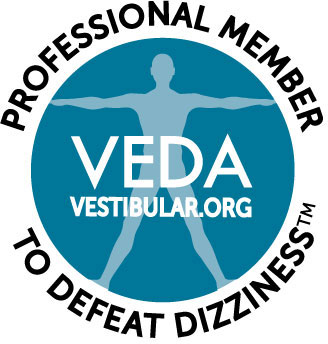A concussion can create visual effects that linger for months or years. A patient’s accommodation is usually the first to be affected. Accommodation is the ability for the lens in the eye to change shape, increase focus, and clearly resolve a target from distance to near. The closer an object, the greater the eye must accommodate to see clearly.
After a concussion, a patient usually develops accommodative insufficiency or infacility. They cannot increase and maintain clear, comfortable near vision or increase and relax their focusing system. Patients that are hyperopic (farsighted) and have never been corrected, or are not fully corrected, must work even harder to change their focus. Unfortunately, these patients can have 20/20 vision but were told in the past that they do not need glasses. Symptoms of accommodative insufficiency and infacility include blurry near and/or distance vision, headaches, dizziness, reading difficulty, double vision, and poor eye tracking. At the Neuro Visual Center Of New York, we utilize specialized digital lenses to help the eyes to focus. These lenses aid in reducing the patient’s incoming symptoms while the brain is still healing.
Convergence Insufficiency, Vertical Heterophoria, and Convergence Excess are just a few of the Binocular Vision Dysfunctions that can occur after a concussion.
- Convergence Insufficiency is the inability for both eyes to converge at the same point on a near target; this can lead to eye strain and double vision.
- Vertical Heterophoria is a vertical misalignment of the eyes due to aberrant signals from one of the otolith organs in the inner ear. These patients usually have a head tilt and may even become dizzier with sound. A patient can also have a vertical misalignment unrelated to their inner ear; these can be a decompensated phoria or due to a significant difference in the prescription between their two eyes.
- Convergence Excess is when the eyes over converge, causing dizziness, headache, and eye pain.
Some patients may have an undiagnosed Binocular Vision Dysfunction that they were able to compensate for. Then, they suffer a concussion, and their eye muscles can no longer hold fusion, leading to double vision. By utilizing small amounts of microprism, we can treat Binocular Vision Dysfunction and alleviate symptoms within a noticeably short period of time. This allows our patients to get back to work and school with reduced or eliminated symptoms.
Time is critical; not every patient can fully bounce back from a concussion within a few weeks. There are a lot of other factors than just binocular vision. It is important to keep a clean diet, drink enough water, and eliminate caffeine and unnatural sweeteners. There can also be cognitive deficits after a concussion, so it is vital to keep your brain active. Lumosity and other brain training games improve cognitive skills. Lastly, it is essential to keep your body moving; even light walking is helpful after the first month post-concussion.






I’ve had wrong diagnosis for 10 years. I’m thinking all my problems could be BVD! Please help
Hi Rod,
Please go to our website and fill out our scientifically validated questionnaire. https://www.nvcofny.com/ This helps us to determine if you possibly have BVD.
The Neuro Visual Center